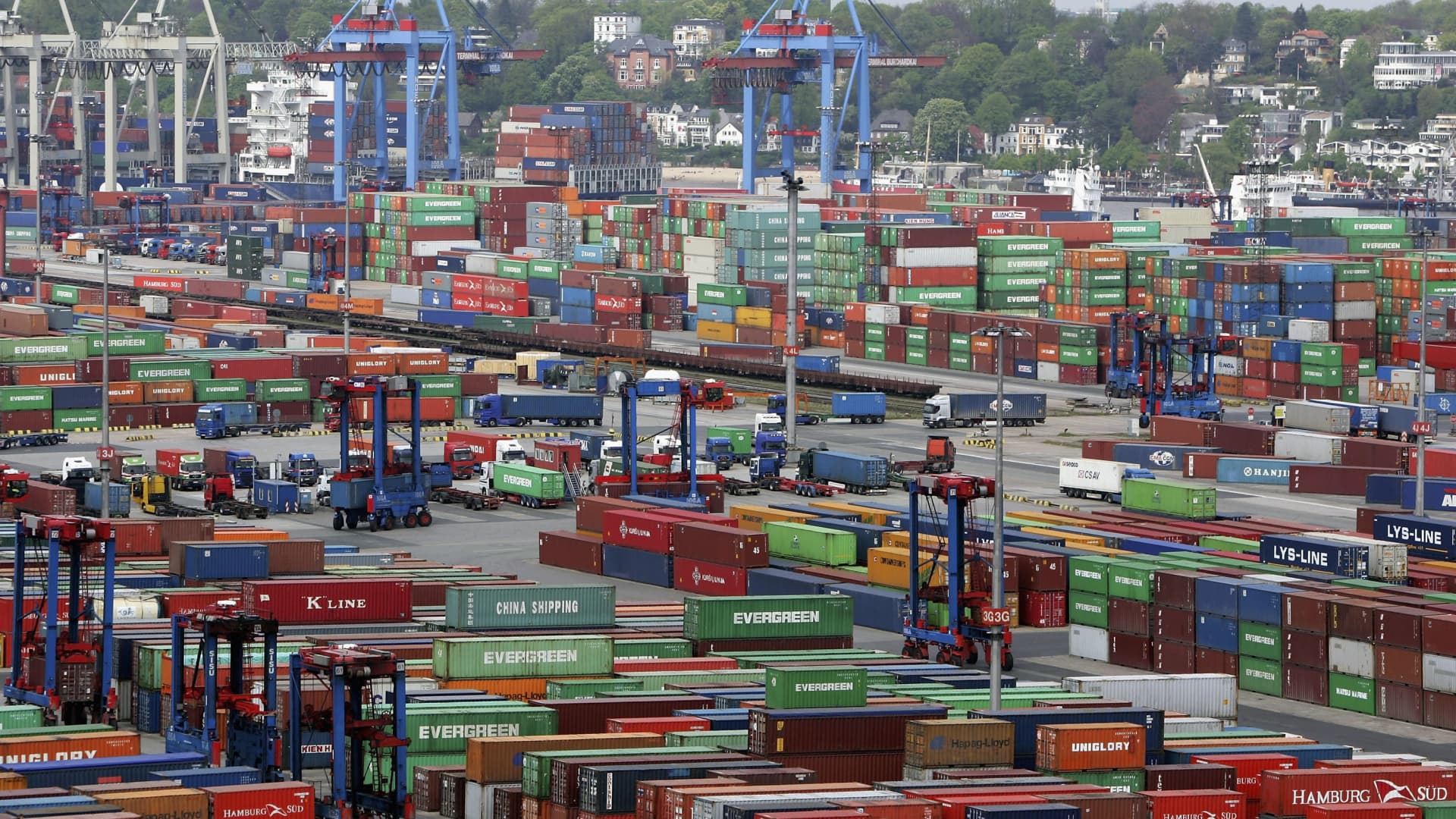
The growing congestion at ports in Germany and the Netherlands, which could delay car and furniture shipments to the U.S. for weeks, shows no signs of clearing up as the latest round of labor negotiations between the Central Association of German Seaport Companies (ZDS) and ver.di, the German labor union, ended with no agreement. A major sticking point is linking dock worker pay to inflation.
Germany, Europe’s largest economy, is facing skyrocketing inflation, with food and energy inflation made worse as a result of Russia’s war on Ukraine. This inflation is at the heart of the negotiation impasse. The union is calling for a yearly automatic inflation adjustment built into a renewed collective agreement for their workers at the 58 ports and terminals. ZDS says its offer is above the inflation rate, but the union has rejected the offer.
“Rising prices for essential living expenses such as energy and food have become an unsustainable burden on German workers, especially for those lower paid workers,” the head of ver.di’s maritime section, Maya Schwiegershausen-Güth, said in a statement to the press. She added that the employers, represented by the Central Association of German Seaport Companies (ZDS), have so far rejected the principle of inflation protection in talks with the union.
“These port companies plan to leave their staff alone to deal with the consequences of rising prices. They are willing to see dockers’ wages go backward, eaten away by inflation. We cannot accept this, especially after all that dock workers have done for the employers and the common good,” she said.
On the ZDS website, ZDS negotiator Ulrike Riedel stated, “We have repeatedly improved our offers and responded to ver.di’s demands. There was no willingness to compromise from ver.di. Now an offer of up to 12.5% is on the table. This also includes a permanent wage increase of up to 8% retroactively to Jan. 6. With this offer, we are above the very high inflation rate and far above what ver.di and other unions are demanding and concluding in other current negotiations.”
Over the course of June during negotiations, the union has had warning strikes of a shift and strikes for 24 hours which have shuttered the flow of trade at some of the German ports. This slowdown created a congestion contagion to ports in the Netherlands bogging down containers destined to the United States and countries around the world.
Andreas Rentz | Getty Images News | Getty Images
According to Germany’s trade office, motor vehicles and auto parts are the country’s top export (15.4 percent). Ranking second and third: Machinery (14.2 percent) and chemical products (10.0 percent).
In addition to those main exports, Ikea furniture and other household goods are also moved out of those ports. Other products include lithium batteries for autos and chassis. Mercedes, BMW, and Ford were also listed in recent Bills of Lading.
Andreas Braun, Europe, Middle East, and Africa ocean product director of Crane Worldwide Logistics, recently told CNBC, “U.S. importers need to look four to five weeks in advance to see if there is a vessel available. This is not normal. Also, if you are lucky to book a slot on a vessel you then have to locate an empty container which can be in the (German or Netherland) hinterland.”
Sources tell CNBC no strikes have been announced or expected this week but there are concerns future strikes could be announced. There has been no announcement of new negotiations.
The ZDS negotiator stated of its last offer to the union, “We cannot afford more than that without endangering the survival of companies. A further escalation is completely disproportionate in view of this offer and harms not only us, but Germany as a whole. We urgently need a conciliation procedure.”
If the impasse continues, arbitration could be called. This is a common dispute resolution procedure in Germany. If that happens, strikes would then be ruled out.
The CNBC Supply Chain Heat Map data providers are artificial intelligence and predictive analytics company Everstream Analytics; global freight booking platform Freightos, creator of the Freightos Baltic Dry Index; logistics provider OL USA; supply chain intelligence platform FreightWaves; supply chain platform Blume Global; third-party logistics provider Orient Star Group; marine analytics firm MarineTraffic; maritime visibility data company Project44; maritime transport data company MDS Transmodal UK; ocean and air freight benchmarking analytics firm Xeneta; leading provider of research and analysis Sea-Intelligence ApS; Crane Worldwide Logistics; and air, DHL Global Forwarding, and freight logistics provider Seko Logistics.





